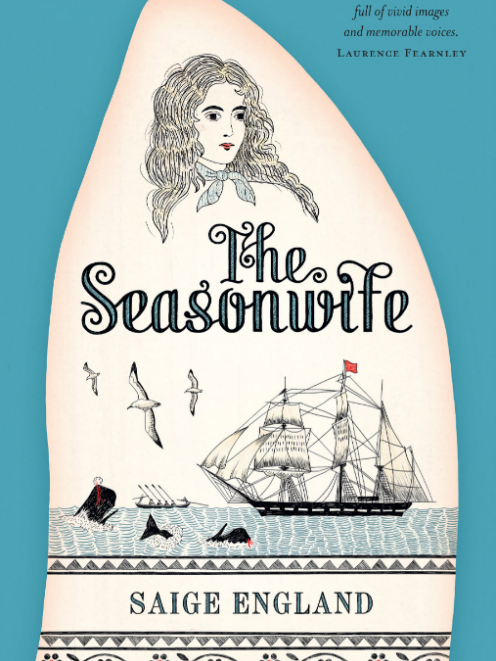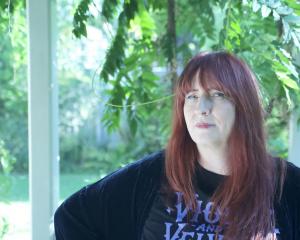THE SEASONWIFE
Saige England
Bateman Books
REVIEWED BY FEBY IDRUS
Saige England’s debut novel The Seasonwife follows three main characters in 19th-century Aotearoa: Bridie, a poor Irish immigrant; Robbie, the cocky, odious ship’s captain who abducts her and takes her to New Zealand; and Manaia, the feisty Māori girl sent by her people to Robbie as a seasonwife, as both an outward gesture of goodwill and a clandestine act of information-gathering, to determine if Robbie and his crew have landed in Aotearoa for good or ill.

The sumptuous prose elevates the dark narrative. Bridie is not just abducted by Robbie, she is drugged, sexually assaulted and imprisoned on a ship where Robbie treats her both as object and punching bag. Manaia is similarly targeted. Robbie may be one of the most gleefully disgusting villains in New Zealand literature, and England is utterly successful in making the reader loathe him.
Part of our hatred comes from his trade. Robbie sells the preserved tattooed heads of Māori to European collectors for their curiosity cabinets. In this novel, England clearly intended to shine a light on this (real) black-market trade. By seating us within the sympathetic mind of Bridie, herself a product of repressive British colonial policies in Ireland, we are fully steeped in the horror of such a trade.
Our sympathy for Māori is further amplified by the scenes in Manaia’s village. Extensive research clearly went into these scenes, and it pays off. We get to see the complexity of pre-colonial Māori social organisation, education, world-view, and diplomacy. Having said that, England skates fairly close to the native-savage stereotype. The individual reader, and especially the Māori reader, must decide for themselves whether England’s characters are presented merely with sympathy, or rather as uncomplicatedly good, lacking the complexity of the Pākeha characters.
This portrayal of Māori, as well as the glossary mostly containing Māori words at the back of the book, raises an interesting question: Who is this book for? I do not think it is for Māori (they do not need to be told of the horrors of colonisation). Perhaps it is for sympathetic Pākeha readers, and as such has a whiff of social justice that will attract some and turn off others. As a book lover, I deeply appreciated England’s literary skill and authorial empathy; as a woman of colour, I found the content both gruelling and troubling in multiple ways.
Nevertheless, The Seasonwife is a work that clearly deserves deep and considered thought.
Feby Idrus is a writer, musician and arts administrator












